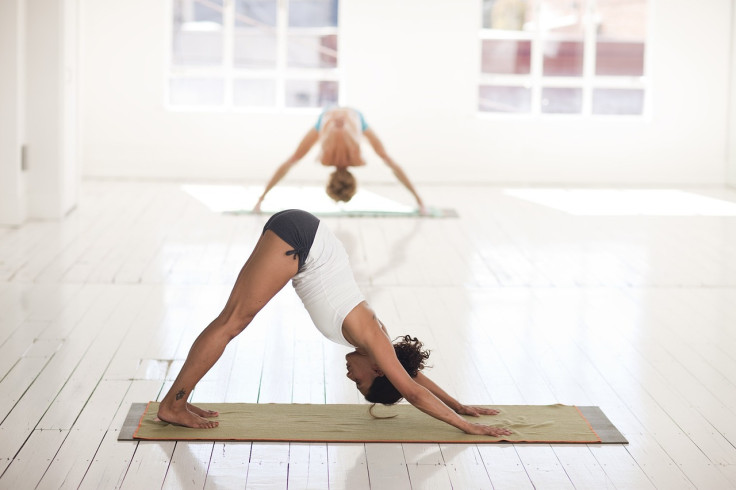Heated Yoga For Depression? Study Says Symptoms Reduced In 2 Months With Around 10 Sessions

Yoga, a holistic practice of mind and body, is known for its stress relieving and mental health benefits. A recent study that evaluated the efficacy of heated yoga, which involves practicing yoga in a heated room, suggests that it could help reduce symptoms of depression in two months, with just around 10 sessions.
The clinical trial led by researchers at Massachusetts General Hospital indicates the possibility of using heated yoga as a viable treatment option for depression, as 44% of the participants who took up the sessions showed signs of remission.
The participants in the trial with moderate-to-severe depression revealed "significantly greater reductions" in symptoms of depression in comparison to a waitlist group after eight weeks, as per the findings published in the Journal of Clinical Psychiatry.
During the trial, 80 participants were divided into two groups: 33 of them received sessions of Bikram yoga in a room maintained at 105 degrees Fahrenheit while 32 participants were on a waitlist.
Bikram yoga or heated yoga involves practicing 26 specific poses of yoga in a specific order over 90 minutes in a very hot environment.
The participants in the waitlist completed the yoga intervention after their waitlist period. The yoga group was prescribed at least two sessions per week, but overall, they attended an average of 10.3 classes over eight weeks.
"After eight weeks, yoga participants had a significantly greater reduction in depressive symptoms than waitlisted participants, as assessed through what's known as the clinician-rated Inventory of Depressive Symptomatology (IDS-CR) scale," the Harvard Medical School said in a news release.
"Moreover, 44% in the yoga arm achieved such low IDS-CR scores that their depression was considered in remission, compared with 6.3% in the waitlist arm," it added.
Even when the participants took part in only half of the prescribed two sessions, they still showed reduced symptoms of depression.
"Yoga and heat-based interventions could potentially change the course for treatment for patients with depression by providing a non-medication–based approach with additional physical benefits as a bonus," said lead author Maren Nyer, director of Yoga Studies at the Depression Clinical and Research Program at Massachusetts General Hospital and an assistant professor of psychiatry at Harvard Medical School.
"We are currently developing new studies with the goal of determining the specific contributions of each element — heat, and yoga — to the clinical effects we have observed in depression," Nyer added.
Researchers said the participants did not show any serious adverse effects with the intervention. Further research is needed to estimate if heated yoga is more beneficial than nonheated one in treating depression.
"Future research is needed to compare heated to nonheated yoga for depression to explore whether heat has benefits over and above that of yoga for the treatment of depression, especially given the promising evidence for whole body hyperthermia as a treatment for major depressive disorder," senior author David Mischoulon, director of the Depression Clinical and Research Program at MGH, said.
Published by Medicaldaily.com



























